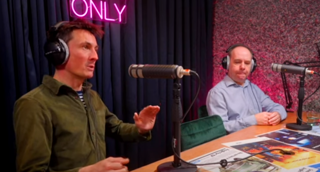The UK is set to slip into recession this winter as rising fuel and energy costs stymie economic growth, the Bank of England warned as it raised interest rates by 0.5% today.
The Bank's Monetary Policy Committee voted eight-to-one in favour of the rise, which takes interest rates from 1.25% 1.75%, in a bid to curb inflation at 9.4% and rising.
But the BoE's sixth consecutive increase will not stem a slide into recession.
It expects the UK economy to shrink through Q4 in a trend that is likely to continue until the end of 2023.
And inflation is set to continue its rise, largely as a result of soaring energy costs resulting from Russia’s invasion of Ukraine.
“CPI inflation is expected to rise more than forecast in the May Report, from 9.4% in June to just over 13% in 2022 Q4, and to remain at very elevated levels throughout much of 2023, before falling to the 2% target two years ahead” the Bank of England said.
It added: “GDP growth in the United Kingdom is slowing. The latest rise in gas prices has led to another significant deterioration in the outlook for activity in the United Kingdom and the rest of Europe.
“The United Kingdom is now projected to enter recession from the fourth quarter of this year. Real household post-tax income is projected to fall sharply in 2022 and 2023, while consumption growth turns negative.”
News of rising interest rates could create headaches for car retailers with packed new car order books, with the move prompting a renegotiation of finance agreements as delivery approaches.
The move, also designed to promote saving over spending to stem rising costs, may also cause some car buyers to re-think their purchases altogether.
The Finance and Leasing Association (FLA) today cited the impact of inflation and rising interest rates as a potential challenge for the car retail sector in the coming months after June saw the motor finance sector suffer its biggest “contraction” since last year’s COVID-19 lockdown.
Michael Davidson, chief revenue officer at Freedom Finance, said that finance would continue to play “a crucial role in enabling more people to buy vehicles by spreading the cost of payments” as household incomes were squeezed.
Earlier this year AM delivered insight into how car finance might be able to remain competitive amid BoE's rising interest rates.


















Login to comment
Comments
No comments have been made yet.